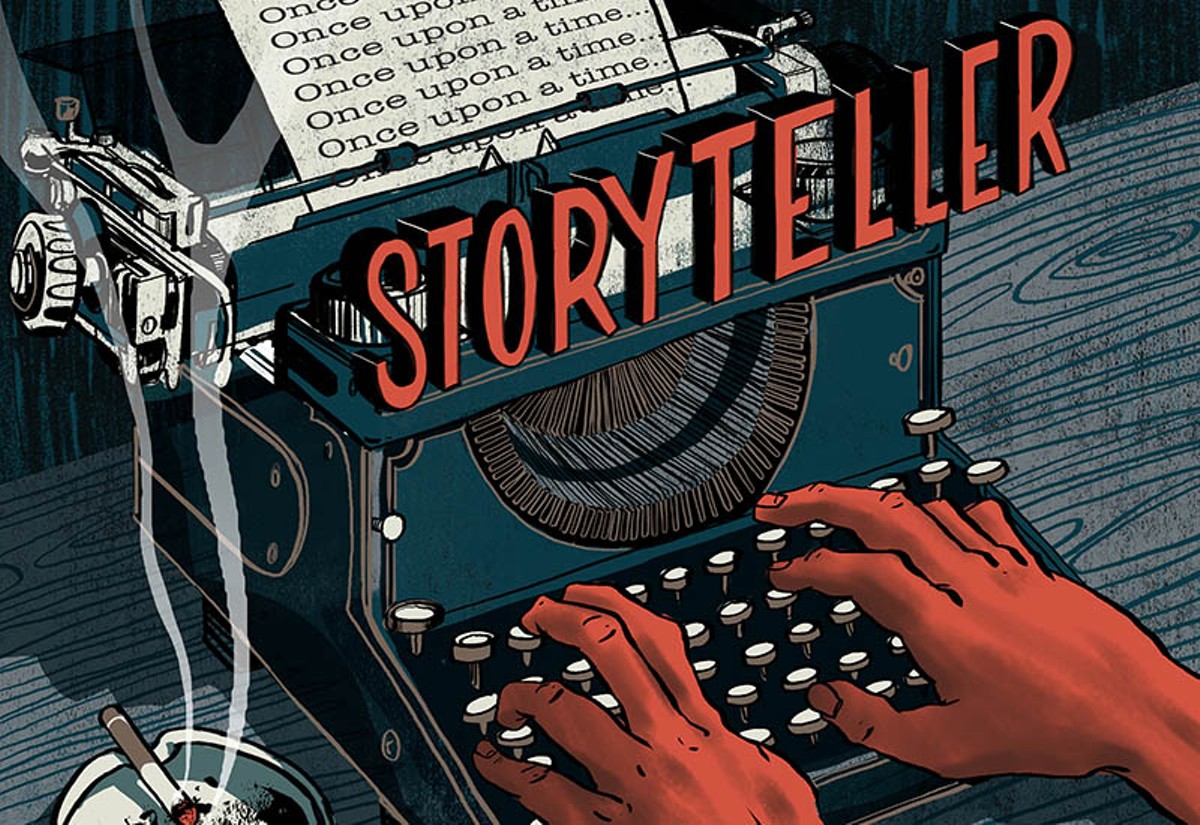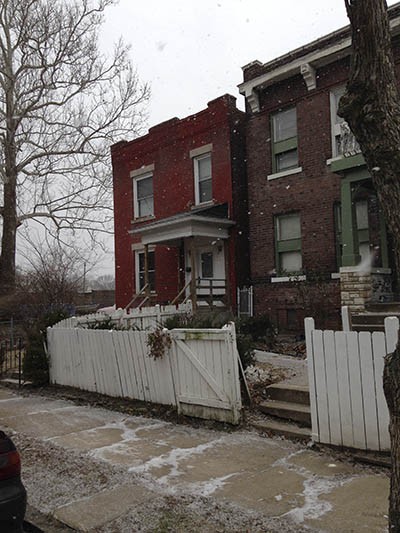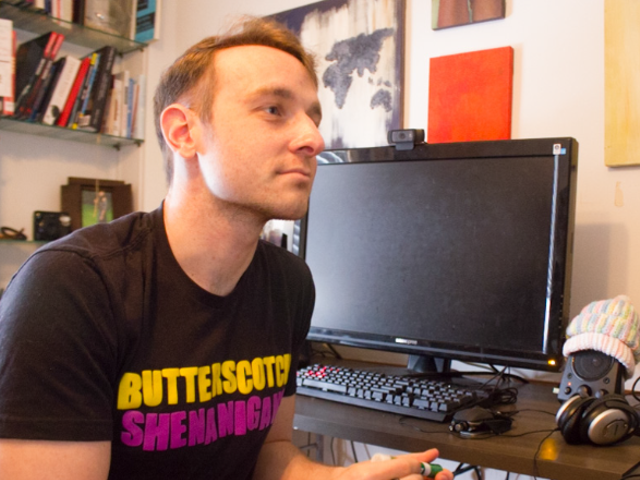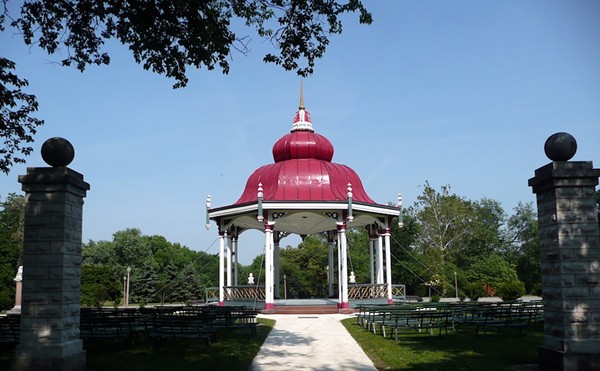Thompson's last story for the Intercept was in December. He was fired in January, according to the news agency. It's unclear what led to the initial investigation, and Reed declined to discuss the matter.
"Thompson was dismissed because of serious ethical violations, several of which he admitted to," a spokesperson for the company said in a statement.
The editors' notes and retraction left some St. Louisans wondering whether Thompson even grew up here. Wasn't it awfully convenient, in the fall of 2014, to be a young black reporter from St. Louis, even as St. Louis found itself at the center of a national conversation about race? Wasn't his background a bit too outlandish?
Thompson isn't exactly chatty when contacted in early February, just hours after the Intercept went public with its retraction. Questioned specifically about the Talking Points Memo essay and the full name of his father, his emailed answer is terse.
"Truly stand by the TPM piece. Donald Jones."
To reporters who contact him for reaction to Reed's allegations, including the RFT, Thompson forwards a letter he'd sent his former boss. And not just one letter — as a reporter for Gawker first noticed, he was sending different versions of the letter, adding new grievances as the day continued.
In the letters, he claims he is "feverishly struggling" with testicular cancer and can't get to his notes to answer the Intercept's questions — his files are in New York, and he is undergoing treatment in St. Louis.
Reviewing some of his notes, however, he writes that he's found "a habit of writing drafts of stories, placing the names of ppl I wanted to get quotes from in there, and then going to fetch the quotes." He adds, "If I couldn't obtain a quote from the person I wanted, I went somewhere else, and must've forgot to change the names — clearly."
If Reed had a problem with that, Thompson knows who she could blame.
"Was it sloppy? Yes?" he writes. "But I'm a cub reporter and expected a sustained and competent editor to guide me, something which I never had at your company and something with which the Intercept continues to struggle as everyone in this business knows."
He acknowledges that he also encouraged some sources to use fake names to protect themselves from the publicity, he says.
"Ultimately, the journalism that covers the experiences of poor black folk and the journalism others, such as you and First Look, are used to differs drastically," he writes. "This dilemma is the Great Problem with the white media organizations that dominate our media landscape."
Lots of people get the letter, but no one seems to be able to get Thompson on the phone as news of the scandal spreads. He responds in short emails with partial answers to the RFT in the hours and days that follow, eventually offering to put a reporter in touch with his brother and possibly his mother to verify his family history. But he never sets up a time and the emails stop before long.
A visit to his mother's house among the vacant buildings of Wabada Avenue yields little more.
His mom listens quizzically for a moment until she's asked about the allegations against her son.
"Oh, I have no comment," Yolanda Thompson says, ushering a reporter toward the door. "I'm sorry, but I have no comment. I wish I could help you."
Less than 15 minutes later, Thompson sends a text message.
"Juan Thompson here," he writes. "I'll call you in a bit."
Thompson's voice is rich and clear on the phone, like a college professor giving a lecture. He will never back down, he says.
"I'm going through a tough time right now, but I've been through a lot tougher times than this," he says. "I'm from the west side of St. Louis, and we're fighters, and we come through, and I will come through on this. I won't be silenced or cowed by any billionaire's company or by any of these folk. That just won't happen."
He declines to speak about the Intercept's allegations, but says this of Reed's note: "That story is full of lies, mischaracterizations and distortions."
He adds, "These people have been dishonest. They have mischaracterized and distorted many, multiple things, because they know the truth about how an anti-black situation at the Intercept this was, and you can quote me on that. I will say that."
The oldest of his mother's ten kids, Thompson grew up among the poverty and violence south of Fairground Park and later in the similarly troubled Wells-Goodfellow neighborhood. He was bussed to Mehlville High School as a teen through a desegregation program that fed black students from north city into the suburban county school.
His mother later agrees to an interview with her son's blessing and says she split with Thompson's biological father over his drug dealing when their son was about five years old.
"He was a very kind-hearted man," Yolanda Thompson says. "But he sold drugs all his life."
Thompson's father, Donald Jones Sr., was officially considered a "persistent offender" by the state of Missouri, according to court records. His arrests were primarily for cocaine and heroin. In 2004, he was convicted of aggravated stalking and violating an order of protection after attacking a woman and making what prosecutors called "a credible threat to kill" her. He was sentenced to ten years in prison but was instead released on probation, according to court records. He was dead before the year was out. Yolanda Thompson says he died in a car crash while running from police a month from their son's high school graduation.
Thompson describes his father this way: "He was an inconsistent but persistent negative influence, and that's the best way of summing up who he is."
Jones might have been surprised to see the life his son crafted for himself. Thompson would have been one of about 250 desegregation students studying at Mehlville, says the high school's former principal, Vince Viviano.
The 2,000-student campus is among with most diverse in the region, with a sizable enrollment of Bosnian students along with others from St. Louis County.
Thompson appears less than a half-dozen times in four years of school yearbooks, including group photos of concert band and the senior year student council. Viviano can recall little about him.
"I remember his face," he says. "I remember him being a really congenial kid."
Mehlville was an A-plus school, meaning the state would pay for two years of junior college for students who achieved certain benchmarks for grades and attendance. Many of Thompson's classmates enrolled in Meramec Community College each year as a result. If they were leaving St. Louis, they headed west to the University of Missouri-Columbia.
Viviano sounds stunned when told Thompson eventually moved to the East Coast to attend Vassar College. He can't remember a single other kid in his nine years at Mehlville who did that.







